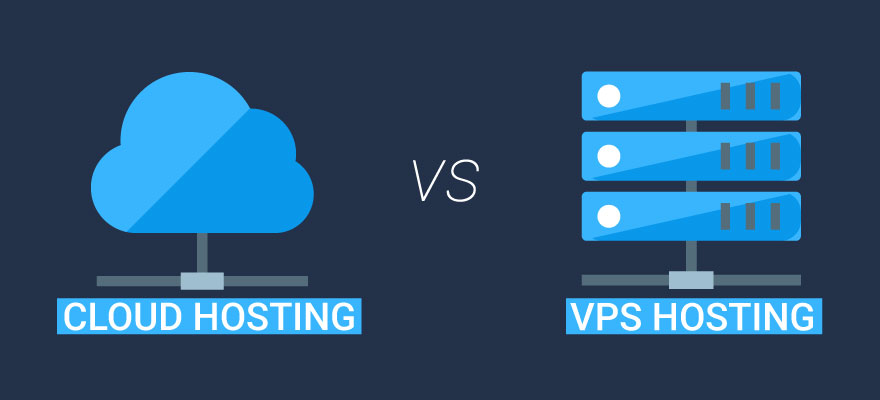Whoever works with projects on the internet knows the importance of having good hosting for projects. If you’ve ever seen your own website offline, you will understand that this is cthe worst nightmare for digital entrepreneurs, IT, or support workers. And if you have not gone through it, it’s certainly something you want to avoid, isn’t it? Lately, there has been much talk about VPS and Cloud Server, and that’s what we’ll cover in this post.
Although both terms represented hosting types, there are several differences between VPS (private virtual server) and Cloud Server (cloud computing). To make the right choice for your site you should know some characteristics of each, as well as advantages and disadvantages.
This setting can greatly influence the success of your site or application. If you have an online business, knowing these alternatives is even more important – and the sooner you become more familiar with them, the better it is.
So, keep reading this post and discover the details about VPS and Cloud Server.
What is VPS?
The acronym VPS stands for Virtual Private Server. In other words, a VPS is a dedicated server divided into several parts, where each of these parts acts as an individual server. In practice, it is a single machine running various web applications, such as websites and software.
What is Cloud Server?
As the name tells, Cloud Server uses cloud hosting, which means you will not have a physical machine. Several physical machines divide the resources within a cloud server, causing one machine to assume the load of the other, in case it’s necessary.
What’s the difference between Cloud Server and VPS?
The main point in common is that both act as dedicated servers. The main difference, however, is that VPS-type hosting relies on a single physical machine, while the Cloud Server uses the cloud (which in turn is based on several physical machines).
From this structural difference, there are a number of advantages and disadvantages we should consider:
Advantages of VPS
• Both VPS and Cloud Server are good solutions for those who need more memory and processor, for example;
• There is no data exchange between clients hosted on the same server, since the files are separate;
• You can reboot a VPS without affecting other servers.
Disadvantages of VPS
• Whoever uses it is fully responsible for configuration and security possibilities;
• If the physical server fails, all VPSs that are part of it will fail;
• CPU performance may be affected if another VPS is required;
• VPS is not scalable. That means storage follows the physical limit of the server. If you reach maximum capacity, you’ll have to look for new options, which can take hours or days to migrate.
Advantages of Cloud Server
• It is scalable: you can add more capacity quickly;
• Cloud is safer: if one server fails, another physical server runs the service, without leaving the air;
• Each client can select its own operating system, unlike the VPS option;
• If another system client has a peak access, the availability of your hosting resources is not affected.
Disadvantages of Cloud Server
• You need a lot of technical knowledge to make the settings.
But after all, what is the best option?
When thinking about business, there is practically no unanimity when comparing two options – and here, it is not different. The choice will depend on the needs of your company and your projects.
VPS is great for sites or applications that are at the beginning – do not yet deal with such a large audience – and will hardly suffer with peaks of access. That’s because this option tends to be a bit cheaper. While offering a number of benefits from a dedicated server, VPS is not as costly as hosting like that.
If your site uses a lot of resources or has variable volume of access, Cloud is the best option because it is more flexible. The cost difference will not be as significant and you will have more stability.
In addition, one of the great advantages of Cloud Server for growing projects is the ability to grow resources quickly. This is without the need for a server migration – this is only possible because this model is based on several different machines.
If your business definitely can not take the risk of getting offline, your decision is much easier: choose a Cloud Server.
When dealing with a server crash is not negotiable in a project, Cloud Server ends up being the best alternative. With this type of hosting you will have peace of mind at that point.
Conclusion
As you can see, the two hosting options are quite interesting. Both have more pros than cons, and are great alternatives for organizations and professionals who have digital projects. It is up to the company to assess which of them best meets the specific needs – both in the current scenario and in designing future scenarios.
We hope this article helped you understand the differences between VPS and Cloud Server. Use the information to balance when deciding which type of hosting you will choose for your projects.





